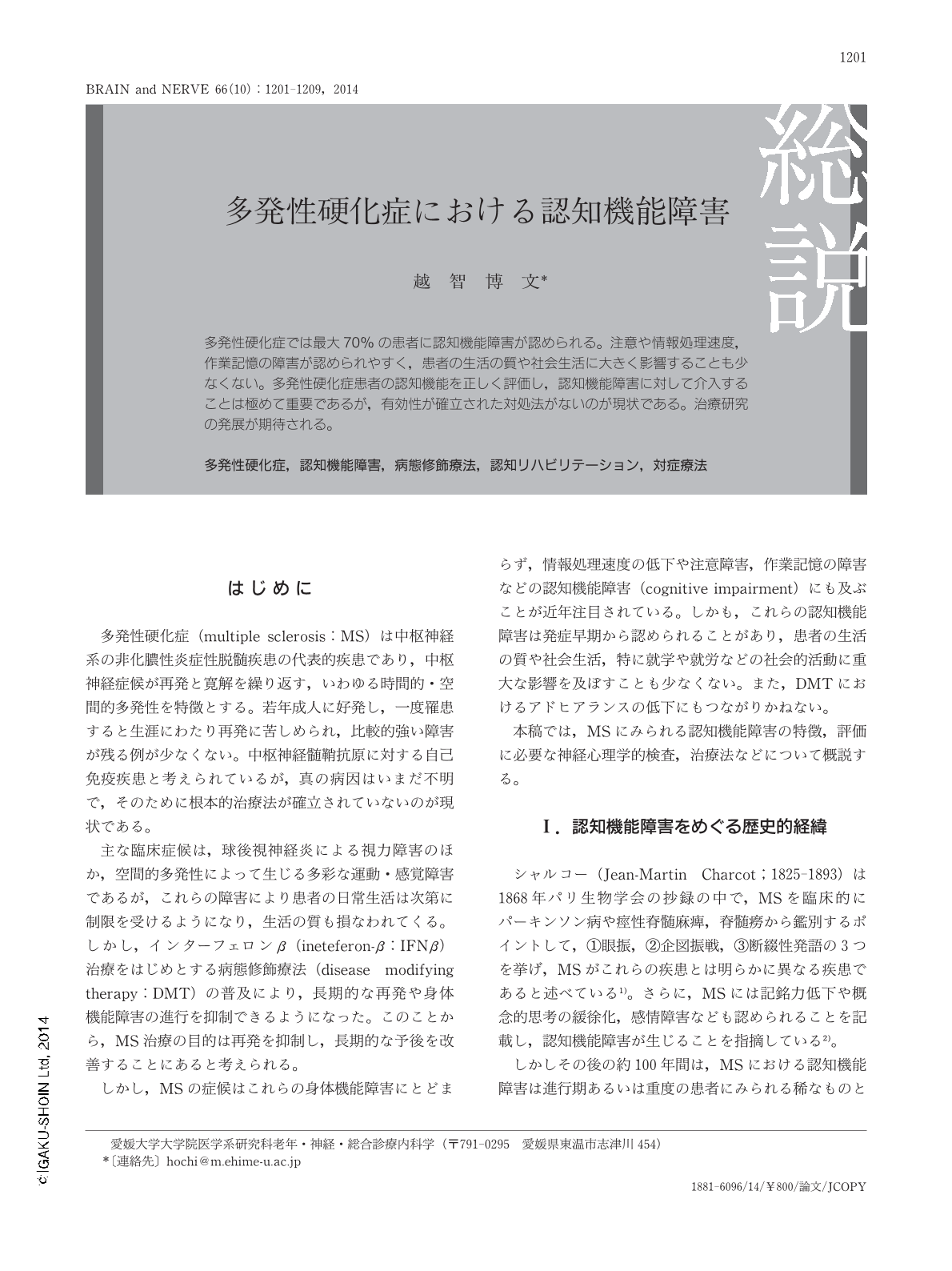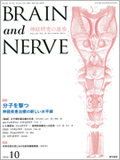Japanese
English
- 有料閲覧
- Abstract 文献概要
- 1ページ目 Look Inside
- 参考文献 Reference
多発性硬化症では最大70%の患者に認知機能障害が認められる。注意や情報処理速度,作業記憶の障害が認められやすく,患者の生活の質や社会生活に大きく影響することも少なくない。多発性硬化症患者の認知機能を正しく評価し,認知機能障害に対して介入することは極めて重要であるが,有効性が確立された対処法がないのが現状である。治療研究の発展が期待される。
Abstract
Cognitive impairment may occur in up to 70% of all patients with multiple sclerosis (MS). Although MS can affect various sites within the central nervous system, a specific pattern of cognitive deficits tends to be seen, especially in the early stages of the disease. These deficits include problems with attention, information processing speed, and working memory. This constellation of deficits can occur with any disease course, and a minimal correlation has been found between physical disability assessed by EDSS and cognitive impairment. Many studies have shown that cognitive impairment is correlated with brain lesion volume, as well as brain atrophy. There are promising neuroimaging indicators that may be useful for identifying patients at risk for cognitive impairment, such as diffusion tensor imaging, the magnetization transfer ratio, and N-acetyl aspartate levels. Cognitive dysfunction is associated with adverse effects on quality of life, employment status, and social activities. Today, there are three avenues for treatment: disease modifying therapies, symptomatic treatments, and cognitive rehabilitation. Unfortunately, data linking therapeutic interventions are limited. A better understanding of cognitive function and its correlation with disease mechanisms will assist in providing a new comprehensive treatment strategy that begins immediately with the diagnosis of MS.

Copyright © 2014, Igaku-Shoin Ltd. All rights reserved.


